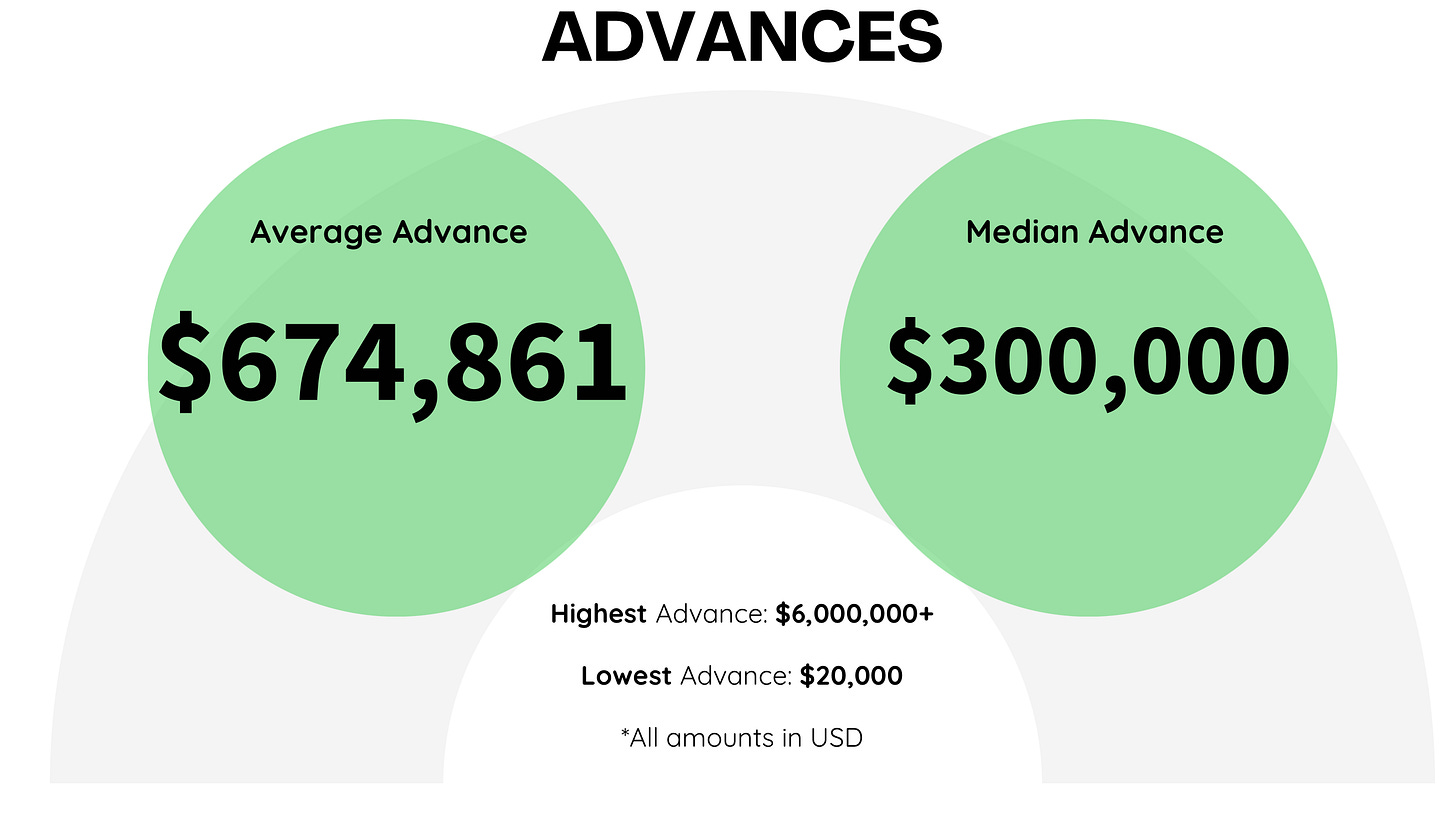Voyer Law: Publishing Agreements in 2025
Law corporation analyzed 100+ publishing agreements to provide more visibility on the conditions developers (mostly indie) agree with publishers.
The company analyzed over 100 agreements between developers and publishers from 2017 to 2025.
❗️While the report may not fully reflect the current realities of publisher-developer relationships, there is almost no such information publicly available.
Voyer Law divided the agreements into three general categories: with an advance payment (where the publisher funds development), without an advance, and agreements for publishing only console versions of a game.
The average revenue share in agreements with an advance is 58.2% in favor of the developer. The median is 50%. The highest developer share in the sample is 90%, the lowest is 2.5%.
In agreements without an advance, the average developer share is higher - 67.9%. The median is 70%. The highest revenue share in the sample is 86% in favor of the developer, the lowest is 50%.
For console porting deals, the average revenue share is 63.1% in favor of the developer, the median is 60%. The highest revenue share is 85%, the lowest is 50%.
In 3.2% of agreements with an advance, the publisher’s mark-up was included. Other partnership agreements had no such wording.
Audit rights are present in most cases - 83.3% of agreements with an advance, 69.3% of console publishing agreements, and 47.1% of agreements without an advance.
Consider subscribing to the GameDev Reports Premium tier to support the newsletter. Get access to the list of curated articles & archive of Gaming Reports that I’ve been collecting since 2020.
The average advance amount is $674,861; the median is $300,000. The highest advance in the sample is over $6M, the lowest is $20,000.
In 95.5% of cases, development funding was provided upfront. In 79.7% of cases, the payment was tied to milestone completion. In 93.9%, the advance was recouped (compensated from the revenue share). In 48.4% of cases, recoupment occurred before the partner received their first revenue share payout.
In deals with an advance, sequel rights were included in 63.49% of contracts. If sequel rights were specified, in 56.41% of cases this was an exclusive right for the partner to develop the sequel, and in 43.59% - the possibility to enter negotiations.
In deals without an advance, a sequel rights clause appeared in 47.06% of cases. Of this percentage, the majority-85.71% - gave the partner the right to enter negotiations for the sequel.
Finally, in console publishing deals, sequel rights appeared only in 25% of cases.
In deals with an advance, 96.4% of developers retained IP rights. Even in the event of a contract breach, in 91.4% of cases, the IP remained with the developer. In all agreements without an advance or with console publishing, the IP remained with the developer.
In 56.5% of deals with an advance, there was a revenue share from merchandise sales. Such terms are also present in half of the deals without an advance and in 25% of deals for console-only publishing.
In deals with an advance, the average merchandise revenue share is 48.3% in favor of the developer. Where there is no advance-47.2% in favor of the developer. In console publishing deals - 40% in favor of the developer.
85% of agreements of all types have a fixed term (15% are perpetual). In 49.2%, there is an auto-renewal clause.
▫️The average term of agreements with an advance is 6.84 years. Without - 4.18 years. The shortest are console publishing deals - 3.7 years.
An average publishing deal in 2025, according to Voyer Law’s sample
Upfront payment of $674.8K.
Revenue share - 57.7% in favor of the developer, paid in tranches.
The developer has audit rights.
The developer retains IP rights.
The publisher has the right to negotiate for the sequel.
The developer’s revenue share from merchandise sales is 48.3%.
Contract term-6 years with auto-renewal.










